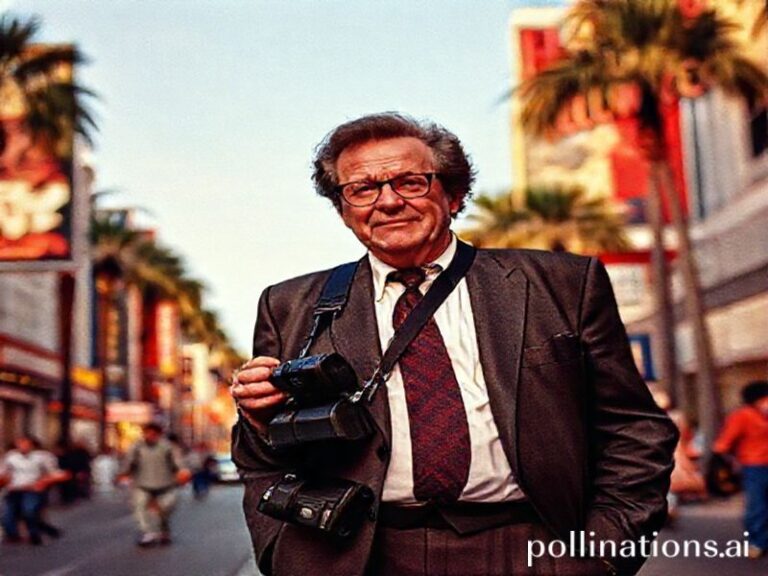Tyrrell Hatton: The Angry Golfer Channeling Global Rage One Swing at a Time
**The Tyrrell Hatton Paradox: How One Man’s Golf Clubs Reflect the Existential Angst of Late-Stage Capitalism**
In the grand theater of professional golf, where middle-aged men in pastel polos chase a white ball across manicured lawns while entire nations crumble under the weight of their own contradictions, Tyrrell Hatton stands as a peculiar prophet of our times. The Englishman’s recent victory at the BMW PGA Championship wasn’t merely another notch in his increasingly impressive belt—it was a masterclass in channeling pure, unadulterated rage into something resembling excellence, a metaphor so perfect for our current global predicament that one suspects the universe is having a laugh at our expense.
While the world grapples with climate catastrophes, democratic backsliding, and the slow realization that our smartphones have turned us into dopamine-addicted zombies, Hatton’s volcanic on-course tantrums have become something of a spiritual release valve for the collective unconscious. When he berates himself after a missed putt, he’s not just a golfer having a bad day—he’s every office worker who’s ever wanted to flip their desk, every commuter stuck in traffic, every citizen watching their government bungle another crisis.
The international significance of Hatton’s success cannot be overstated, particularly in a post-Brexit Britain that’s still trying to figure out whether it should feel more European, more American, or simply more confused. His victories offer a peculiar form of national therapy: proof that British excellence can still thrive on the global stage, even if it arrives wrapped in a package of barely suppressed fury and the kind of self-deprecation that would make a therapist weep into their notebook.
From Shanghai to São Paulo, golf fans recognize something profound in Hatton’s struggle. Here is a man who has achieved the extraordinary—world-class athletic performance—yet remains perpetually dissatisfied, forever chasing perfection in a sport designed to humiliate even its greatest practitioners. It’s the human condition distilled into 18 holes: we build civilizations, split atoms, sequence genomes, yet still can’t reliably hit a stationary ball with a stick.
The economic implications are equally fascinating. While cryptocurrency markets implode and tech billionaires play space cowboy, professional golf has become a bizarre safe haven for obscene amounts of money. Hatton’s earnings—comfortably in the millions annually—represent a fascinating redistribution of wealth from Saudi sovereign wealth funds, American corporate giants, and Asian tech conglomerates to a man from High Wycombe who occasionally resembles a pressure cooker about to explode. It’s globalization at its most surreal: international capital flowing toward the most relatable form of controlled self-destruction we’ve managed to invent.
Perhaps what’s most striking about Hatton’s global appeal is how perfectly he embodies our era’s defining characteristic: the performative authenticity of controlled anger. In a world where actual rage is either suppressed by authoritarian regimes or weaponized by populist demagogues, watching a man channel his fury into something productive feels almost revolutionary. He’s not breaking windows or storming parliaments—he’s breaking par and storming leaderboards, a violence we can all endorse.
As nations debate whether democracy can survive social media and scientists warn of ecological collapse, Tyrrell Hatton continues his eternal quest to master a game that cannot be mastered. In his frustration lies a strange comfort: even in our failures, we can occasionally conjure moments of transcendence. The ball may not always obey, but the effort itself—that magnificent, futile, utterly human effort—remains worth watching.
In the end, perhaps that’s the most international message of all: we’re all just trying to play through, one expletive at a time.







